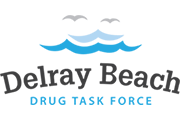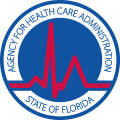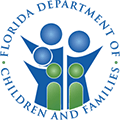Methamphetamine, or meth, is a powerfully addictive drug. It is typically snorted, smoked, swallowed, or injected and gives a fast-acting and intense feeling of euphoria that can last for up to twelve hours.
Understanding Meth Addiction
Learn about meth addiction
The positive feelings that a person experiences when using meth are a result of the drug’s ability to increase the brain’s available supply of dopamine, a neurotransmitter associated with pleasure. Because the euphoric feelings meth brings are so powerful, it can be extremely difficult to break an addiction to the drug. Unfortunately, the longer a person uses meth, the more severe the effects of its use become. Despite the grip meth may have over a person’s life, however, there are resources available to help.
Statistics
Meth Abuse Statistics
Among people in the United States ages 26 and older, 5.5 percent have used methamphetamine and slightly less than half of a million people (0.2%) have used the drug within the last month. People who use meth have more than four and a half times the risk of death when compared with healthy, non-addicted peers.
Causes & Risks
Causes and Risk Factors for Meth Abuse
Both genetic and environmental factors play a role in determining someone’s risk of becoming addicted to methamphetamine. These risk factors include:
Genetic: There is strong evidence to suggest that certain people are more biologically vulnerable to meth addiction. People who have relatives who abuse meth are more likely to abuse the substance themselves, suggesting that at least part of the reason certain people become addicted to meth is related to genetic vulnerability.
Environmental: Certain environmental factors can also increase a person’s risk of meth use. Spending time around other drug users will increase a person’s risk of using meth, as will a personal history of trauma and a history of using other drugs. Long-term exposure to chronic stress can also increase a person’s chance of becoming addicted to meth, as it can become an escape from emotional turmoil.
Risk Factors:
- Family history of substance use
- Personal history of other drug use
- Personal history of mental health conditions, such as schizophrenia, depression, or anxiety disorders
- Being around others who abuse meth
- Being the victim of abuse
- Exposure to chronic stress or violence
- Having poor impulse control
Signs & Symptoms
Signs and Symptoms of Meth Abuse
The signs of methamphetamine abuse can vary depending on the severity of the addiction and the length of time someone has been abusing the drug. People who are using meth often exhibit the following signs and symptoms.
Behavioral symptoms:
- Being socially withdrawn
- Displaying erratic behavior
- Lying or stealing
- Poor performance at work
- Owning drug paraphernalia
- Failing to keep up with responsibilities
- Aggressive outbursts
Physical symptoms:
- Weight loss
- Tooth decay
- Muscle spasms
- Tics
- Skin problems such as acne, sores, track marks, or puncture wounds
- Erratic sleep patterns
- Sexual dysfunction
Cognitive symptoms:
- Paranoia
- Delusions
- Hallucinations
- Memory loss
- Confusion and disorientation
- Loss of good judgment and reasoning ability
Psychosocial symptoms:
- Irritability
- Agitation
- Poor self-esteem
- Extreme emotional fluctuations
Effects
Effects of Meth Abuse
Methamphetamine is a powerful drug that can have devastating effects on a person’s life. The following are some potential consequences of meth abuse if it is left untreated:
- Relationship strain, divorce, or estrangement from loved ones
- Social isolation
- Chronic unemployment
- Financial problems
- Homelessness
- Decline in mental and physical health
- Weakened immune system
- Contracting diseases such as HIV or hepatitis from dirty needles or risky sexual behavior
- Death, either from overdose or suicide
Co-Occurring Disorders
Meth Abuse & Co-Occurring Disorders
Methamphetamine abuse often does not exist in isolation. Instead, it tends to develop alongside other mental health disorders. People may initially use meth to try and cope with the symptoms of their mental health problems, but soon find they are trapped in a cycle of chronic substance abuse. The following are common mental health disorders that occur alongside meth abuse:
- Schizophrenia
- Attention-deficit/hyperactivity disorder (ADHD)
- Depressive disorders
- Bipolar disorder
- Anxiety disorders
- Posttraumatic stress disorder
- Other substance use disorders
Withdrawal
Effects of Meth Withdrawal & Overdose
Effects of meth withdrawal: Over time, a meth user’s body becomes accustomed to the presence of the drug and may even begin to need the drug to function. When a person attempts to stop using meth, that person may experience extreme discomfort as his or her body readjusts to operating without the drug. More than just being uncomfortable, meth withdrawal can be life-threatening. Any attempt to detox from meth should be done under qualified medical supervision. The following are some of the effects of meth withdrawal:
- Overpowering cravings for the drug
- Flu-like symptoms, including hot and cold sweats
- Rapid weight gain
- Extreme fatigue
- Depression and anxiety
- Tics
Effects of meth overdose: Because a person’s body develops a tolerance to meth over time, a user needs more and more of the drug to achieve a high the longer he or she uses it. An overdose happens when a person ingests too much of the drug for the body to handle. The effects of an overdose range from extreme discomfort to death, and can include the following:
- Organ failure, such as kidney failure
- Heart attack
- Breathing problems
- Stroke
- Seizures
- Chest pains
- Loss of consciousness
- Coma












